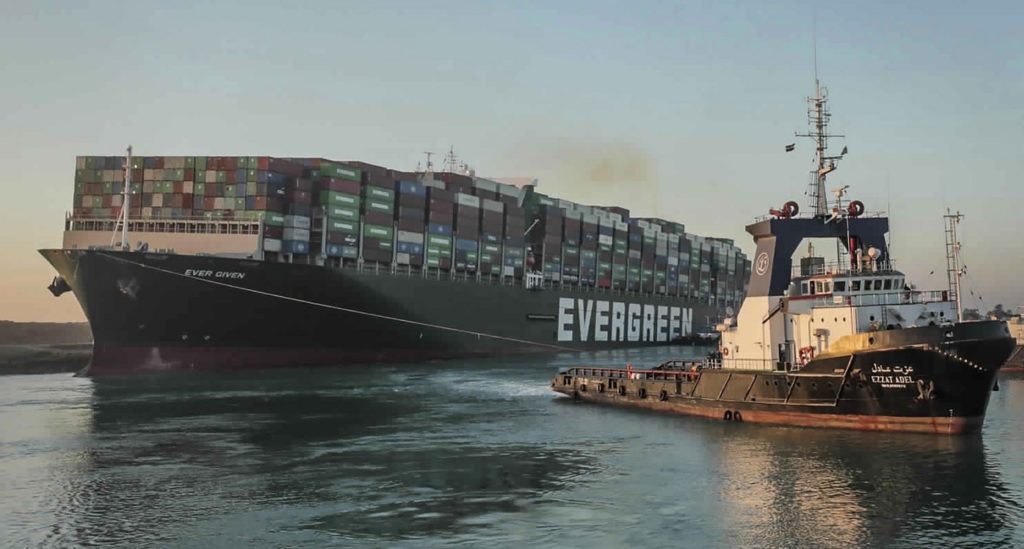Covid Anniversary Blog

Almost a year ago I wrote a piece for the ISR Covid-19 blog on what might happen to business models due to the pandemic. Part of my focus then was about the role of global supply chains, and particularly how disruptions in those supply chains can have a detrimental impact on a business. I thought about this again when I saw the news footage of the Ever Given, carrying 18300 shipping containers, ‘stuck’ in the Suez Canal.
On the morning of March 23rd strong winds buffeted this massive cargo ship leading it to collide with the canal banks and getting stuck.
Whilst I know at an abstract level about the vast flow of shipping containers across the world, until this point I had no idea the sheer scale of traffic down this 120-mile corridor connecting the Mediterranean Sea and the Red Sea.
An article from BBC News sums up the importance of this canal which transits approximately 50 ships and 12% of global trade daily. 369 ships were parked in a traffic jam behind the Ever Given stopping approximately $9.6bn worth of daily trade, or $400m and 3.3 million tonnes of cargo an hour. These numbers are vast and show the scale of movement of goods around the world and the vulnerabilities of key pinch points.
Anxious owners of the cargo on board (and stuck in the traffic jam around it) had to wait 6 days before it was freed. But the story doesn’t stop there. The long terms impact on the supply chain are expected to last for months.
But behind this global disruption were also the individual stories illustrating the impact on small firms. These include Jack Griffiths who is still waiting for their shipment of Snuggy Dressing gown/blankets.
The delay is also causing cashflow issues and the looming possibility of the seizure of cargo to pay the Ever Given ‘bill’. The Suez Canal Authority is also claiming $916 million in compensation.
The Ever Given saga also serves to remind us again how the global pandemic as well as more localised issues such delays at ports attributed to Brexit, and the on-going protests about the movement of goods in Northern Ireland. This leaves small businesses in particular, vulnerable to further disruption in supply, associated risks to their cashflow and added costs of sourcing replacements and/or failing to meet their contractual obligations.
The blockage of the Suez wasn’t really on most small businesses radar – a bit like a global pandemic! All business need to understand their supply chain, how vulnerable they might be even to ‘once in a lifetime’ events and what alternatives might exist. Supply chain resilience should now be on every business’s agenda.
Diane Holt is Professor of Entrepreneurship at Leeds University Business School. This piece is written as a follow-up to a post originally published in the COVID-19 blog on 7th May 2020 by Diane which can be found here.
Photograph: In this photo released by Suez Canal Authority, the Ever Given, a Panama-flagged cargo ship, is pulled by one of the Suez Canal tugboats, in the Suez Canal, Egypt, on Monday, March 29, 2021. Photo credit: Suez Canal Authority via AP.
